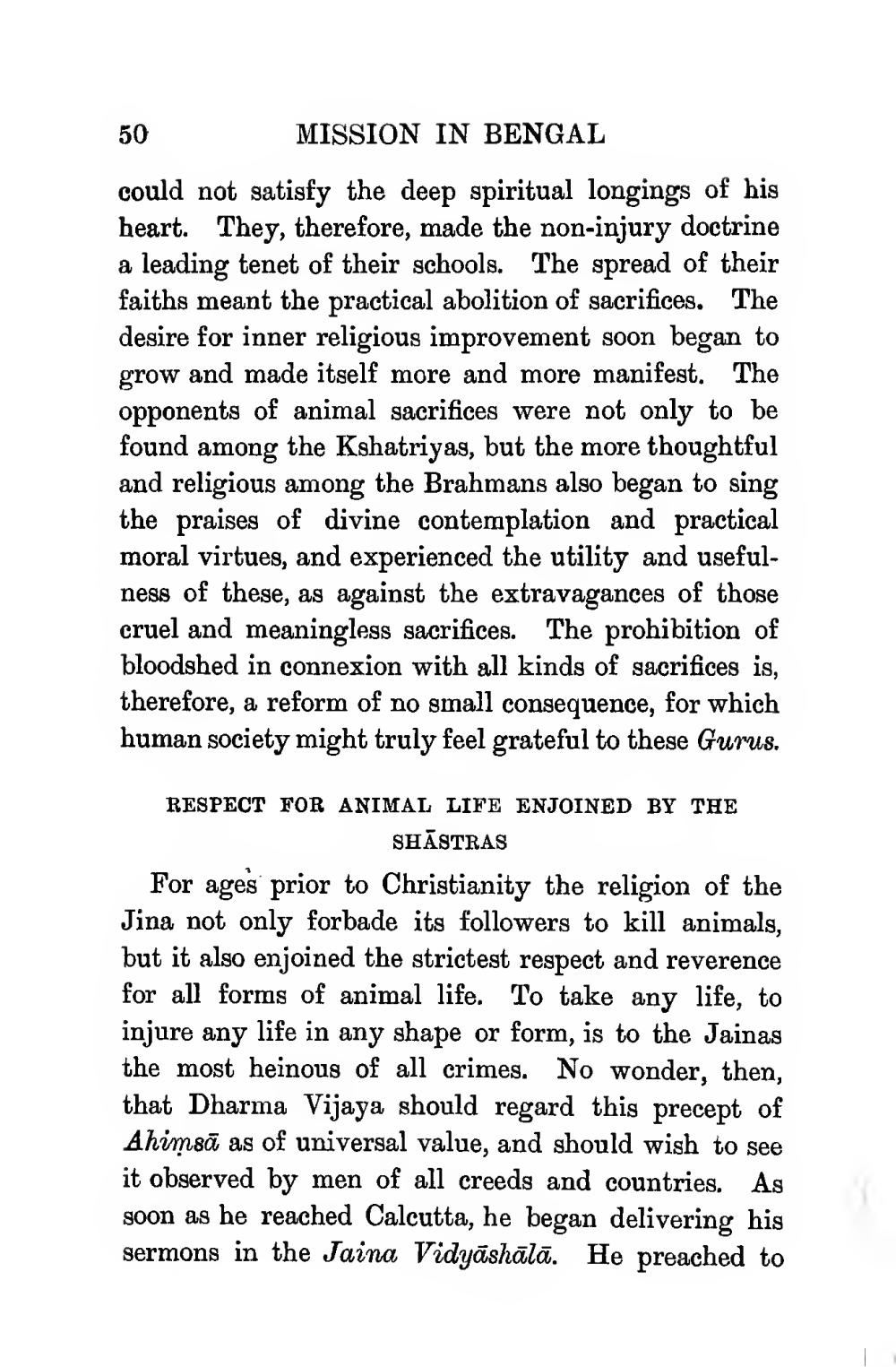________________
50
MISSION IN BENGAL could not satisfy the deep spiritual longings of his heart. They, therefore, made the non-injury doctrine a leading tenet of their schools. The spread of their faiths meant the practical abolition of sacrifices. The desire for inner religious improvement soon began to grow and made itself more and more manifest. The opponents of animal sacrifices were not only to be found among the Kshatriyas, but the more thoughtful and religious among the Brahmans also began to sing the praises of divine contemplation and practical moral virtues, and experienced the utility and usefulness of these, as against the extravagances of those cruel and meaningless sacrifices. The prohibition of bloodshed in connexion with all kinds of sacrifices is, therefore, a reform of no small consequence, for which human society might truly feel grateful to these Gurus.
RESPECT FOR ANIMAL LIFE ENJOINED BY THE
SHĀSTRAS For ages prior to Christianity the religion of the Jina not only forbade its followers to kill animals, but it also enjoined the strictest respect and reverence for all forms of animal life. To take any life, to injure any life in any shape or form, is to the Jainas the most heinous of all crimes. No wonder, then, that Dharma Vijaya should regard this precept of Ahimsā as of universal value, and should wish to see it observed by men of all creeds and countries. As soon as he reached Calcutta, he began delivering his sermons in the Jaina Vidyāshālā. He preached to




